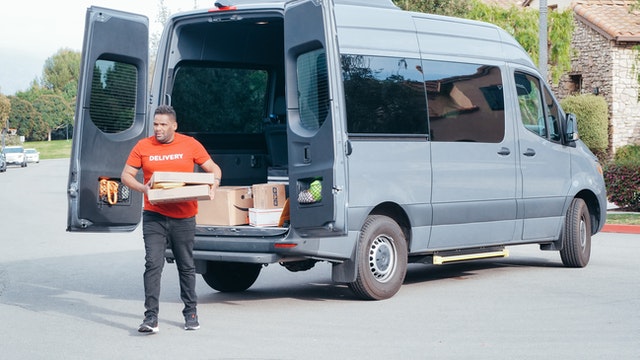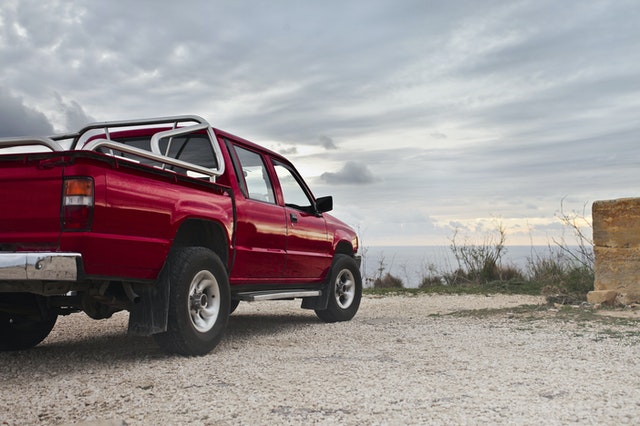
You’ve started a small business and you’re still in the process of getting everything organized. You’re looking at other companies around you and wondering what they have that you might need. Some obvious things spring to mind, such as:
- A marketing strategy
- A business plan
- Good financial education
- Reliable suppliers
- A reliable way of funding your business
You see companies with all of these things and realize that you need them too. However, you also come across a few ideas and concepts that you’re unsure about. Does my business really need that? This is a question you find yourself asking many times, and today we’re focusing on something that probably came under your radar: commercial vehicles.
Firstly, what are commercial vehicles? In short, they are vehicles that have been specifically designed for commercial use. This can include trucks, vans, and also some modified cars. The type of vehicle doesn’t matter too much, what matters is that it will be used to help your business.
With that in mind, does your small business need a commercial vehicle?
What type of work do you do?
The best way to answer the main question is to start with this one: what work does your business conduct? Are you the type of business that can do everything online? If so, a commercial vehicle just isn’t worth the investment. Sure, it could be used to advertise your business, but you may as well use your current car and get it wrapped with your logo.
Generally, only certain types of businesses will benefit from having a commercial vehicle. We can’t list them all as it can go on forever, but here are a few business types that will actually find commercial vehicles useful:
- Delivery companies – an obvious place to start, but a delivery company needs a commercial vehicle. Here, you require a van or truck to store packages in when making deliveries. You could use your personal vehicle, but commercial ones offer more space to take on more packages, meaning you can make more money. They are also better equipped to store everything safely and minimize damages.
- Contractors – are you a contractor that spends a lot of time visiting clients to provide services? For example, you’re a plumber that goes door-to-door and fixes things. Or, you’re a handyman that does a similar thing or an electrician. In any of these instances, a commercial vehicle is handy as you can use it to store your tools. This lets you bring your tools with you on every job, so you’re always ready to tackle any task a client requests.
- Mobile businesses – this refers to all sorts of businesses that are conducted on a mobile basis. In essence, you will travel around with your business in tow. Mobile dog grooming companies come into mind, as do mobile food businesses. In either case, you need a commercial vehicle to a) keep all of your supplies, and b) conduct business out of. You can literally provide your service via your van, so it has multiple uses.
- Construction businesses – again, these businesses benefit from commercial vehicles as you can store things in them. Trucks tend to be a popular choice as they provide extra storage for construction site materials and equipment, and they’re also built to withstand the rugged nature of construction sites.
Clearly, the type of work you carry out will be the biggest factor in determining if you should get a commercial vehicle or not. In a lot of cases, you instantly know that this is not worth investing in. If the vehicle does nothing in terms of helping you run your business and being more productive, then there’s no point in buying it.

Will your personal vehicle do the same job?
We touched upon personal vehicles above, but this was to use it as a way of advertising your business. Indeed, that’s a benefit of commercial vehicles, but can your personal vehicle also do the same job as a commercial one?
Again, it depends on the work you do. If you only need a vehicle to store supplies, you might be able to use your personal vehicle to do this anyway. Particularly if you only have a small set of tools and don’t require huge amounts of equipment. So, before you jump into buying another vehicle, think about whether your current one can be used instead. It’ll give you the practical benefits of a commercial vehicle without the extra costs.
Can you afford it?
Finally, ask yourself, can you really afford a commercial vehicle? Think about how expensive it is to buy a car, now consider the additional costs of a vehicle that’s meant for businesses. They tend to be bigger and therefore more expensive. Granted, places like Bokan Auto Center offer finance options for commercial vehicles, and this can make things more affordable for you.
Ultimately, it’s a case of shopping around and finding your ideal vehicle. Then, you factor in the costs of purchasing it against your budget. From here, you have to weigh up the pros and cons of buying one. If you desperately need one to conduct your work, then it is a worthwhile investment. Paying for one via a loan might be the best to limit the financial impact and keep your cash flow positive while starting up. If you think that having a commercial vehicle won’t do a great deal for your business, then it’s probably not worth spending money on one.
In conclusion, not all businesses need commercial vehicles. In fact, only a small selection of businesses will genuinely benefit from them. It largely boils down to the first question posed in this article: what type of work do you do? By answering this, you can sometimes know right away if a vehicle is needed or not. Don’t bother buying one if it’s just for advertising or reputation purposes – there are better and more affordable ways of advertising your business and boosting your reputation. Only get one if it is necessary, your personal vehicle isn’t suitable, and you can justify the costs.

Leave a Reply